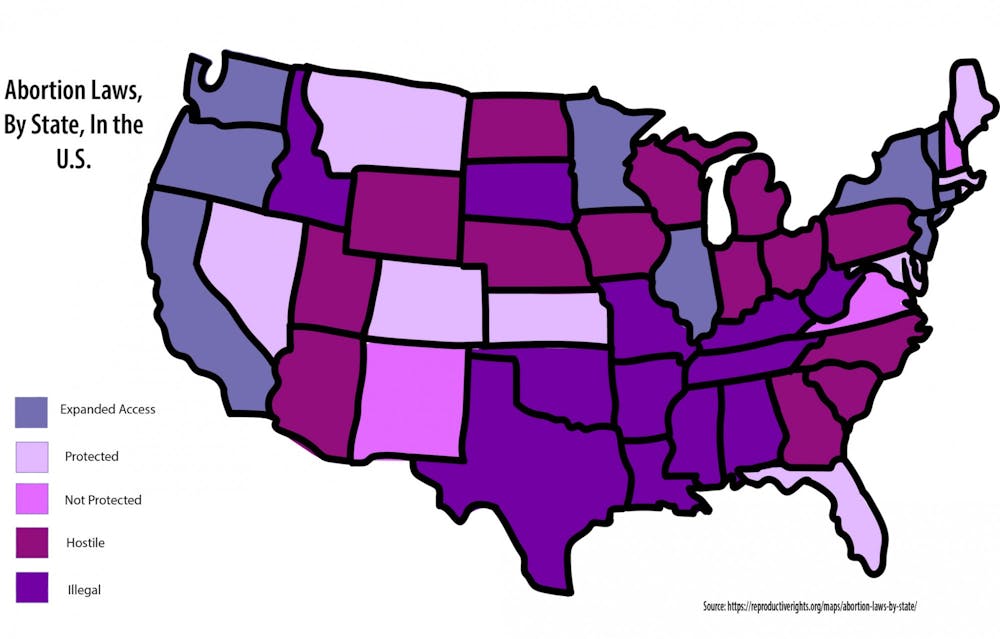Throughout the years, when reproductive rights were threatened but not yet struck down, we would be momentarily forced to grapple with the possibility of a post-Roe world and what that would look like.
When Justice Ruth Bader Ginsburg died in September 2020 and Justice Amy Coney Barrett was confirmed onto the Supreme Court, a post-Roe country suddenly became close enough to taste. And as we anticipated this inevitable post-Roe society, it invoked images of back-alley abortions and the risks they carry.
But on June 24, our hypothetical post-Roe society was no longer hypothetical. There’s no more theorizing about an era without guaranteed legal abortion. We’re living it.
The consequences of this legal decision extend further than we can imagine. The imagery of a post-Roe world isn't just back-alley abortions, but invasive surveillance and incarceration. The carceral system has always preyed on pregnant people, and the criminalization of abortion is the newest arm of the already gigantic monster that is mass incarceration.
Abortion is now completely illegal in 13 states, mainly due to trigger bans. 10 of these states do not have exceptions for cases of rape or incest. And that’s not including the 10 states where abortion is legal only for now, as their bans are temporarily blocked.
Without the protection of Roe, abortion can now be considered a crime. With provocative words like “murderer” being used by militant pro-life groups to describe those seeking abortions, the argument that people who receive abortions should be prosecuted — alongside the doctors who perform them — is gaining more traction.
Abortion is becoming an increasingly attractive target for police and prosecutors. Texas State Representative Briscoe Cain, whose seat is up for election in November, said he would introduce legislation to allow district attorneys to prosecute abortion violations even in areas outside their jurisdiction.
Whether or not this is feasible, it proves that pursuing prosecution of people seeking abortions is very much a priority, especially in conservative strongholds.
Of course, even in states where abortion is illegal, there are counties with Democratic district attorneys who have vowed not to pursue prosecution of those seeking abortions. But that kind of protection is on a case-by-case basis, and it’s ultimately up to local governments and is subject to change as leadership changes.




